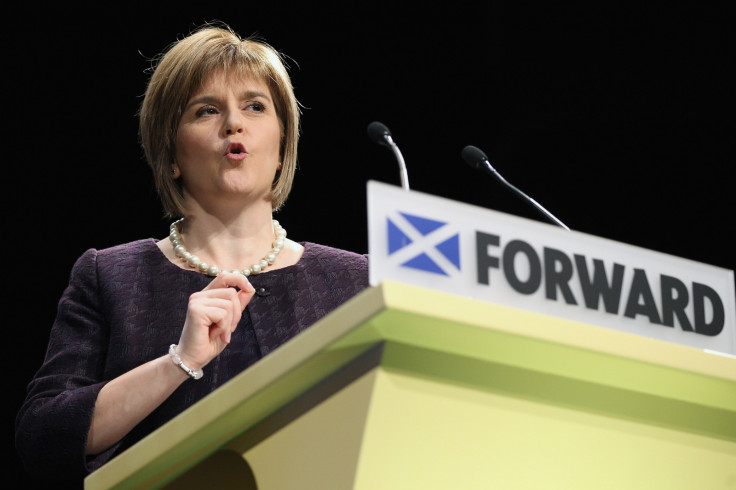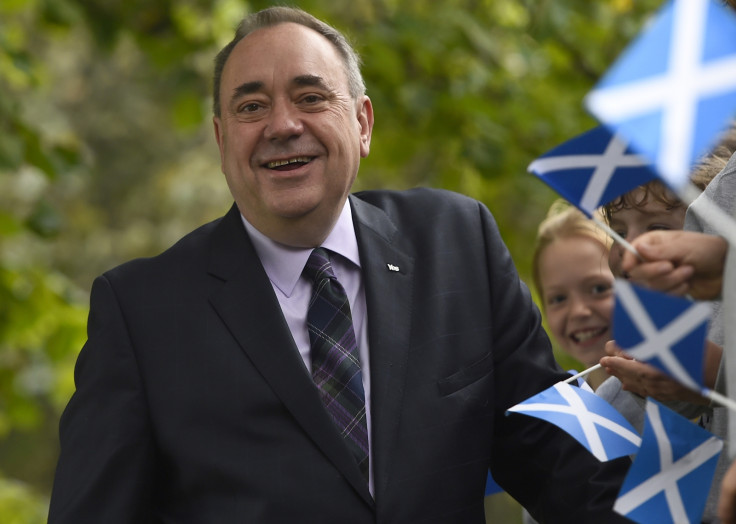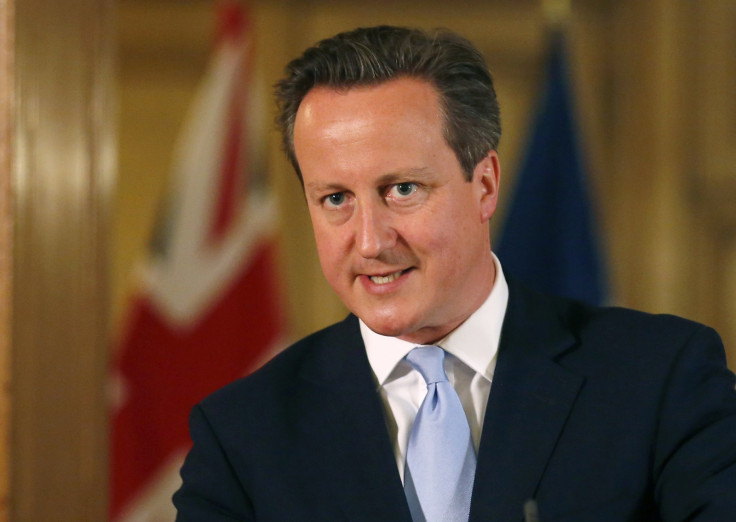If Nicola Sturgeon Wins Power as Alex Salmond's Successor She Will Inherit a Golden Legacy

It's fair to say Nicola Sturgeon, who will almost certainly become SNP leader and first minister of Scotland within a few weeks, can look forward to inheriting one of the most golden legacies that any incoming UK political leader has ever enjoyed.
In the brief period since the independence referendum, "Yes" campaigners have flocked to join the SNP in their tens of thousands, leaving the party with a membership that has tripled almost overnight. Sturgeon will lead the third-biggest party in the UK and indeed, there is a good chance it will shortly become bigger than UKIP and the Liberal Democrats combined. Given Scotland has less than 9% of the UK population, this is a breakthrough of seismic proportions.
And in just seven months from now, Sturgeon will also have the best shot at breaking Labour's stranglehold over Scottish representation at Westminster that any SNP leader has had since William Wolfe in 1974.
Her personal qualities arguably leave her better-placed than her predecessor, Alex Salmond, to take advantage of that opportunity. It's unlikely the gender gap will continue to be the Achilles heel for a Sturgeon-led SNP that it was for the "Yes" campaign but, more pertinently, her left-leaning instincts and working-class Glasgow background will appeal to the traditional Labour voters in west-central Scotland who recently defied the party whip to back independence in such huge numbers.
If the SNP can win a sizeable chunk of Westminster seats in May, the prize could be enormous and almost as big as the one that was at stake in the referendum. Peter Kellner of the polling firm YouGov has speculated it is perfectly possible that, in the event of a hung parliament, neither Labour nor the Conservatives will be able to form a workable coalition with the Liberal Democrats alone, and will have to seek additional support from either UKIP or the SNP.

If that happens, Sturgeon will undoubtedly seek to force the London parties to keep the grandiose promises of "Devo Super Max" and "near federalism" that they made in a state of panic prior to the referendum.
Essentially, that would mean the transfer of all powers to the Scottish Parliament other than the small number that are absolutely essential to the functioning of a unified state.
The prize may be huge but unfortunately so is the challenge Sturgeon faces in winning it. At the last UK general election, the SNP's support slumped badly in the weeks leading up to polling day and that can be largely attributed to the party's total exclusion from the TV leaders' debates.
A last-minute legal challenge was launched to secure SNP representation in the final debate but the judge advised it had come far too late.
So Sturgeon will have to swiftly decide whether to seek much earlier legal redress this time, or whether a better strategy would be to engage with the broadcasters (assuming they are willing to be engaged with) and try to shame them into accepting that it is not reasonable to wholly exclude a party that has a much bigger UK-wide membership than the Liberal Democrats and that has enjoyed unbroken parliamentary representation since 1967.
Sturgeon will also have to find a way of neutralising Labour's standard strategy for shoring up their Scottish vote at Westminster elections, namely the suggestion that a vote for any party other than Labour will let the Tories in. Even though that claim defies all logic and sense, voters have a long track record of buying into it.
Sturgeon's best bet will probably be to remind Scots it was Labour MPs such as Tom Harris who were queuing up to smooth David Cameron's path to Downing Street after the last election because they couldn't bear the thought of working with other parties. The SNP, by contrast, were moving heaven and earth to put together a "progressive alliance" that could have frozen the Tories out of power.
Because of the scale of the challenge ahead, many SNP members are pinning their hopes on a different type of progressive alliance this time around – one that is assembled before the election, not after.
The SNP, Greens, SSP and countless non-party organisations and individuals all worked together harmoniously in the "Yes" campaign and there are high hopes that a joint slate of "Yes Alliance" candidates could be put forward for the general election. (Having said that, the proposed name will have to be worked on, in acknowledgement of the fact that Devo Max rather than independence is now the immediate goal.)
The forthcoming SNP deputy leadership contest will be an interesting test of how widespread the enthusiasm is for such a pact, because one candidate, Stewart Hosie, has spoken of the need to keep the broader "Yes" movement alive, while his opponent Keith Brown has placed more emphasis on the SNP themselves being the vehicle for radical change.

Last but not least, Sturgeon will need an alternative strategy for achieving Devo Max if the cards don't fall in her favour at the general election.
She'd be well-advised to resist the pressure from some well-meaning quarters for her to put on the sackcloth and ashes in the way that Labour did in 2011 and mournfully chant "we lost, we lost" until it sinks in.
That's a complete misreading of the situation – Labour had slumped to a historic low in 2011, whereas the 45% vote for independence at the referendum was a high watermark and has generated considerable momentum. Yes, there has to be a clear recognition that the popular will is to remain part of the United Kingdom for the time being, but that's as far as it goes.
Indeed, the SNP's real moral duty is to press relentlessly for the clear mandate for much greater devolution to be respected. The Ashcroft exit poll found a quarter of "No" voters were specifically voting for more powers, and if those people are added to the 45% of the electorate who voted for full sovereign independence, that comes to a grand total of 59%.
There is also ample opinion poll evidence that Devo Max is the centre of gravity in Scottish public opinion. So, to my mind, if Sturgeon has to keep the vague threat of an early second referendum alive as a tactic to secure Devo Max on behalf of the electorate, that's exactly what she should do.
A compromise option might be to raise the possibility of a consultative referendum on Devo Max itself. That could put the UK government in a bind – if they tried to thwart such a vote, that would be seen as a profoundly anti-democratic step and might increase support for full independence. But if the referendum went ahead, in all likelihood it would produce a substantial "Yes" majority and heap massive moral pressure on London.
So Sturgeon has an enviable range of options at her disposal. Her skill as a politician, and a little bit of luck here and there, will determine whether she passes on to her own successor the platinum legacy of a country that basically governs itself.
James Kelly is author of Scottish pro-independence blog SCOT goes POP! Voted one of the UK's top political bloggers, you can hear more from Kelly on Twitter @JamesKelly.
© Copyright IBTimes 2025. All rights reserved.





















